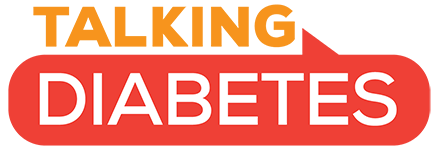Should You Seek Out a Nutritionist or Dietitian?
If you have diabetes, what you eat can have a big impact on your health. The right diet can help steady your blood sugar, blood pressure, and cholesterol levels. Eating well can also keep you at a healthy weight.
But it’s more than just eating the right foods (fruits, vegetables, grains, protein, some dairy) and staying away from others (fried foods, food high in salt, sweets, drinks high in sugar). How much you eat, and how often, can be important, too.
A registered dietitian (RD) or registered dietitian nutritionist (RDN) is a specialist who’s trained to help you figure out a plan for all those things.
What Does an RD/RDN Do?
The official name for it is medical nutrition therapy. With an RD or RDN, you will:
- Talk about your eating habits and your diet
- Set realistic goals for your health – like exercising or drinking more water
- Come up with your personal nutrition plan
What Training Do They Get?
An RD or RDN must have:
- A bachelor’s degree that typically includes courses in:
- Food and nutrition sciences
- Food service systems management
- Business
- Economics
- Computer science
- Sociology
- Biochemistry, physiology, microbiology, and chemistry
- Completed an accredited, supervised practice program at a health care facility, community agency, or food service corporation
- Passed a national test given by the Commission on Dietetic Registration
They also have to complete continuing professional educational requirements to stay registered.
What Can You Expect From Your Visit?
Your doctor will refer you to an RD or RDN. Your first visit can last from 45 to 90 minutes. You’ll go through your medical history and talk about the medicines you take. They’ll also ask about the kind of foods you like and how active you are. Then they’ll help you set up daily meal plans that take all that into account.
You might need to make up to four follow-up visits during the next 6 months, depending on your progress and overall health. After that, you’ll have one each year. Most insurance plans, including Medicare, cover a certain number of sessions with an RD or RDN.
What Is a CDE?
An RD or RDN who also is a certified diabetes educator (CDE) can:
- Help you understand diabetes
- Answer your questions about the condition
- Give you and your family tips to manage it
It might be a good idea to talk with a CDE if you:
- Take a lot of different medications at different times
- Are on an insulin pump
- Need to continuously check your glucose levels
A CDE must pass a 175-question test about managing diabetes before they get their credential. They must re-earn it every 5 years.
If you work with a CDE, you’ll start with a one-on-one session, where they’ll:
- Offer suggestions about your diet and ways to exercise
- Explain how your medications work
- Talk with you about any issues you have with controlling your diabetes
After that, you might have more one-on-one meetings, or she may recommend group classes. Most insurance plans cover these visits.
Source: https://www.webmd.com/diabetes/nutritionist-dietitian-choose

